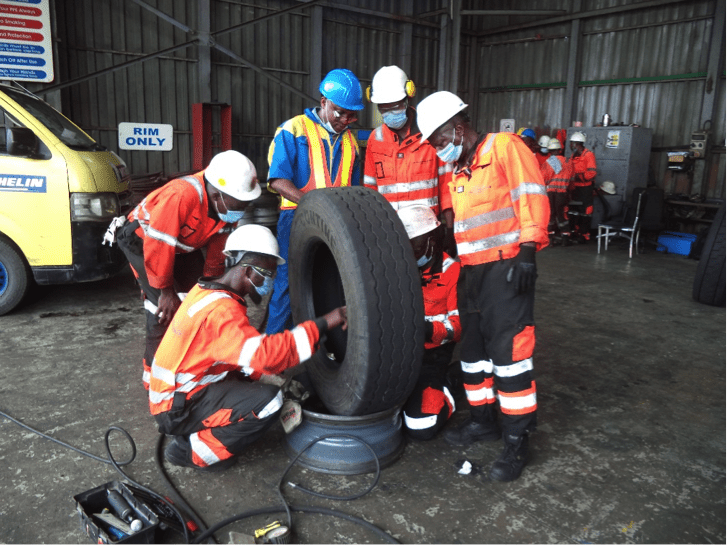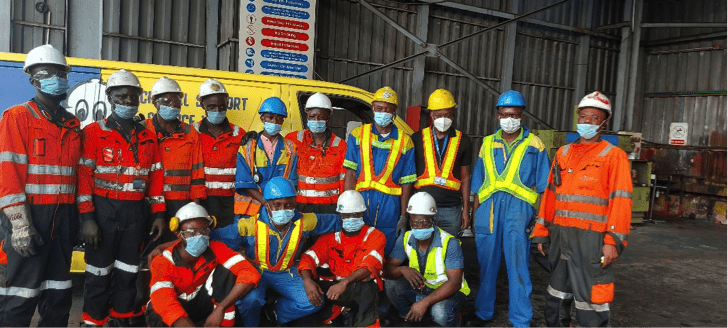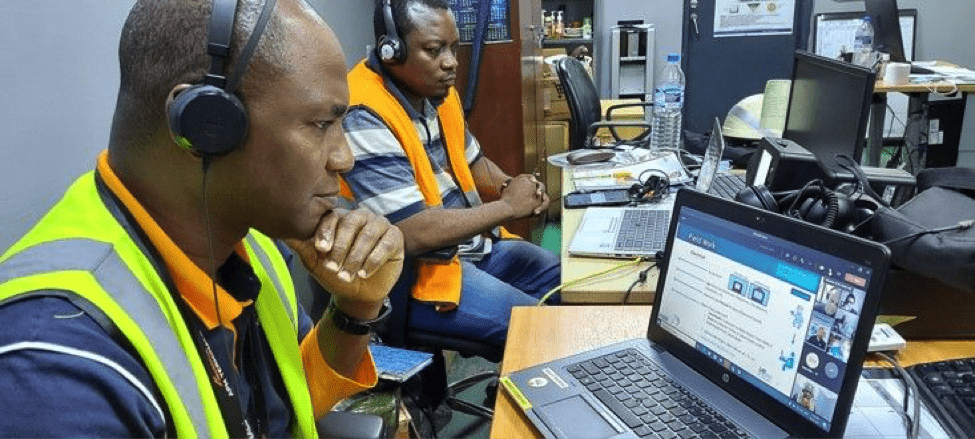
Nigeria’s biggest container terminal, APM Terminals Apapa has invested over N50 million in employee development programs since the start of 2021.
The company said in a statement issued over the weekend that more than 100 employees have benefited from 18 different training programs spread across various professional skills. “More employee development programs are planned for the latter part of 2021 and 2022,” the company said.
Terminal Manager of APM Terminals Apapa, Steen Knudsen said the trainings were important because employees are an integral part of the company’s core values. He said continuous investment into employee development and upskilling is the key to success for APM Terminals Apapa.
“Our employees are one of our five company values. It is important that we continue to invest in developing and upskilling our organisation to be ready for tomorrow’s challenges. In the past year, we have been investing heavily in improving our assets and facilities, and this journey continues. We have also begun an investment into training and development, as we need to have an organisation which can truly deliver to the international standards of our stakeholders – customers, the Nigerian economy and community, employees and our shareholders. The onus is on us all to make good use of the training for our development and continue to impact the business positively,” Knudsen said.

APM Terminals Apapa employee development programs cut across all levels of employees – from the top management to mid-level managers and to junior workers. Majority of development programs are focused on upskilling of employees in engineering and operations functions, as these represent the bulk of employees directly involved in the handling of heavy lifting operational equipment.
Some of the trainings and certifications include Liebherr, Leading As Managers at APM Terminals, Electrical and Hydraulics training, Asset Management training, Tire Technology and Inspection in collaboration with Michelin, and UE Systems’ Airborne/Structure Borne ISO CAT I certification, among many others.
Crane Foreman, Victor Idoroyen Williams, who underwent a Konecranes TC5/TCE5 Program, described it as an “eye opener”. He said, “We got to understand our new equipment better; they are eco-friendly with a lower fuel consumption and lesser fuel emissions. It is now easier to troubleshoot; we can easily trace faults; carry out checks to determine faults and their likely solutions. The new equipment works more with Artificial Intelligence; there is a display screen on the equipment where you can speak to it and it responds.”

Rubber Tyred Gantry (RTG) crane electrician, Lawal Ibrahim, reflecting on the Siemens Industrial Automation and Hydraulics program, said, “It was a deep and insightful course on the control system of our RTG cranes which uses Siemens software. We were introduced to recent developments in the software and exposed to other features that the future equipment would likely have.
“The course compares differences between the old and new equipment. Now, we understand better how the software works and how you can use it in resolving problems in the machine. I am pleased the organization is giving everyone an opportunity to learn and grow.”